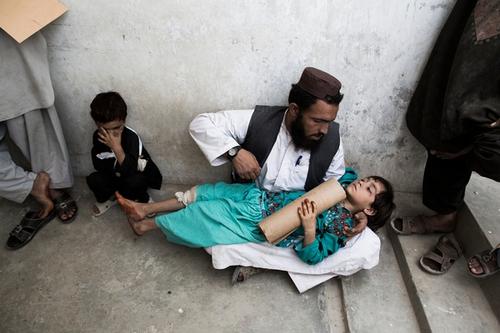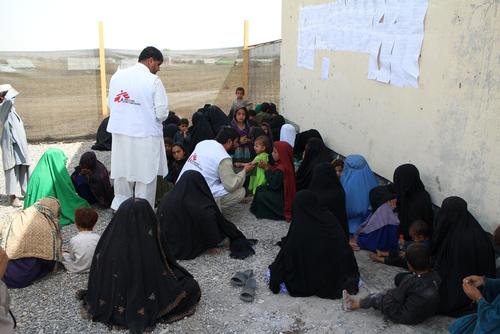Executive Summary
2014 is another crucial year for Afghanistan: after 12 years, the US-led NATO military intervention in the country has entered its final phase, and presidential and provincial elections are scheduled for April. As the bulk of international troops withdraw before the end of the year, the world’s attention is rapidly turning elsewhere. What interest remains in Afghanistan is firmly fixed on military drawdown, security transition and pre-electoral wrangling. Conspicuously lacking is a focus on the daily reality for Afghans, trapped in an escalating conflict – indeed 2013 was reportedly the second most violent year for civilians since 2001.
As coalition forces pull out, their leaders attempt to define the legacy of the international intervention in Afghanistan. Alluring narratives of success – crafted to suit political and military agendas – abound. When it comes to healthcare provision, much investment and progress has undoubtedly been made since 2002. However, official accounts of Afghanistan’s health system habitually emphasise achievements, yet neglect unmet medical humanitarian needs.
For MSF, the overly optimistic rhetoric about healthcare success often diverges significantly from the reality our teams see on the ground. However, a dearth of reliable statistics makes it difficult to gain a comprehensive view of the true extent of needs. To build a clearer picture of people’s ability to access healthcare, MSF conducted research in the four hospitals where our medical teams work – in Helmand, Kabul, Khost and Kunduz provinces. Over a six-month period, a survey and interviews were carried out with more than 800 patients and their caretakers to help better understand the extent of the barriers people face when trying to obtain medical care.
The results are grim. Statistics and personal accounts highlight the devastating impact of the ongoing war on Afghan communities. In a country with some of the highest mortality rates in the world, the conflict is causing widespread disruption to health services, particularly in remote areas.
People’s stories reveal the war’s toll on civilians: an entire family blown up by a landmine as they travelled home from hospital with a new baby; villages caught between the attacks and the demands of multiple rival armed groups; people forced to hold night-long ‘death watches’ over sick or injured loved ones as fighting rages outside, in the hope of safely reaching medical care the next day.





